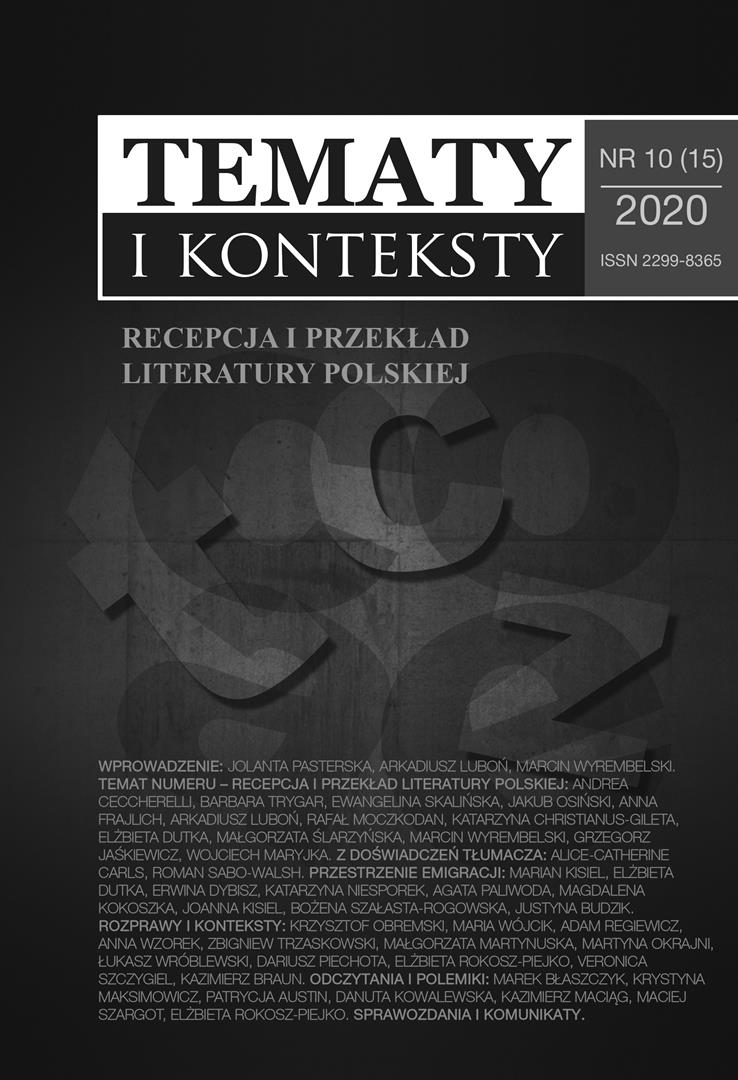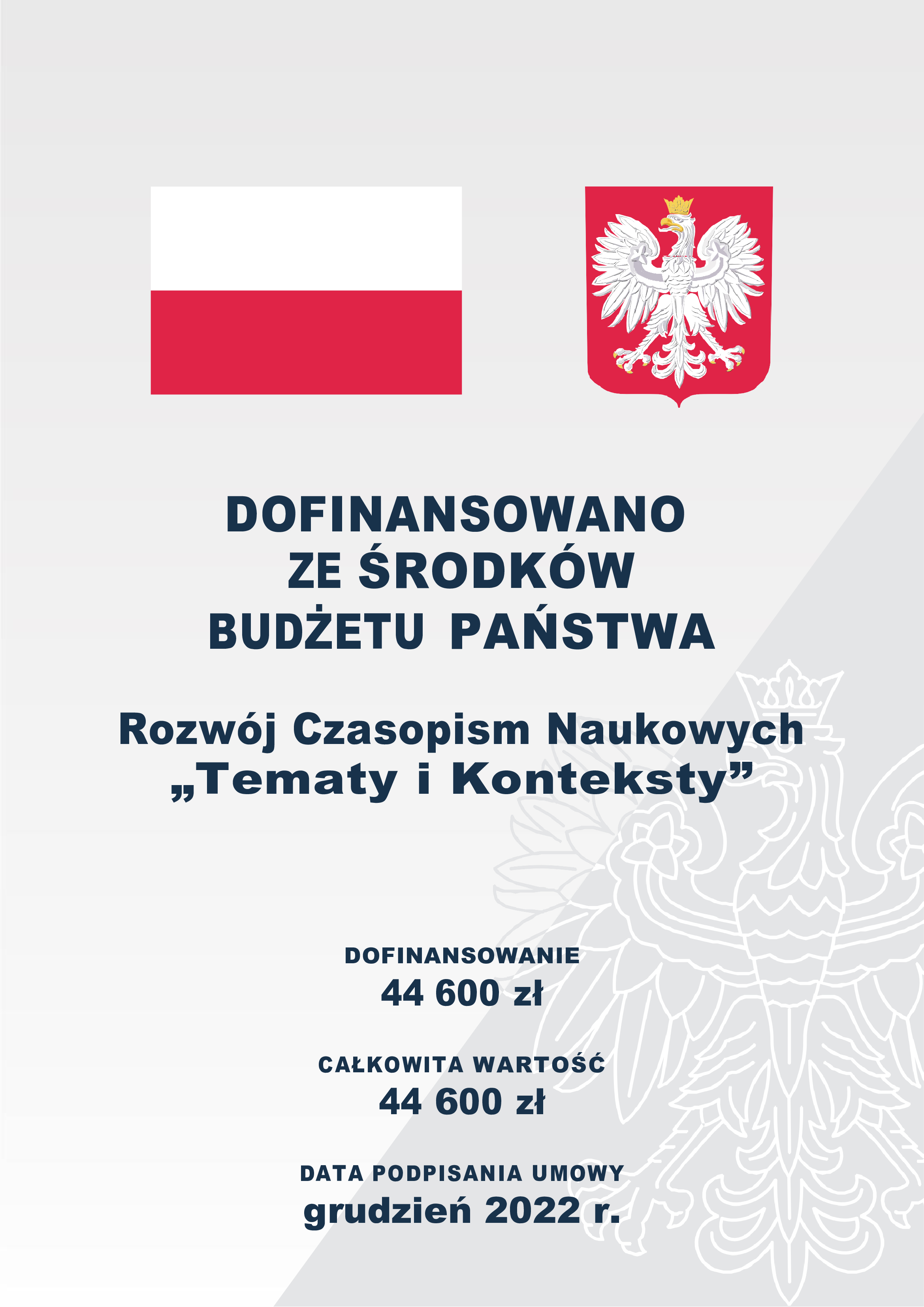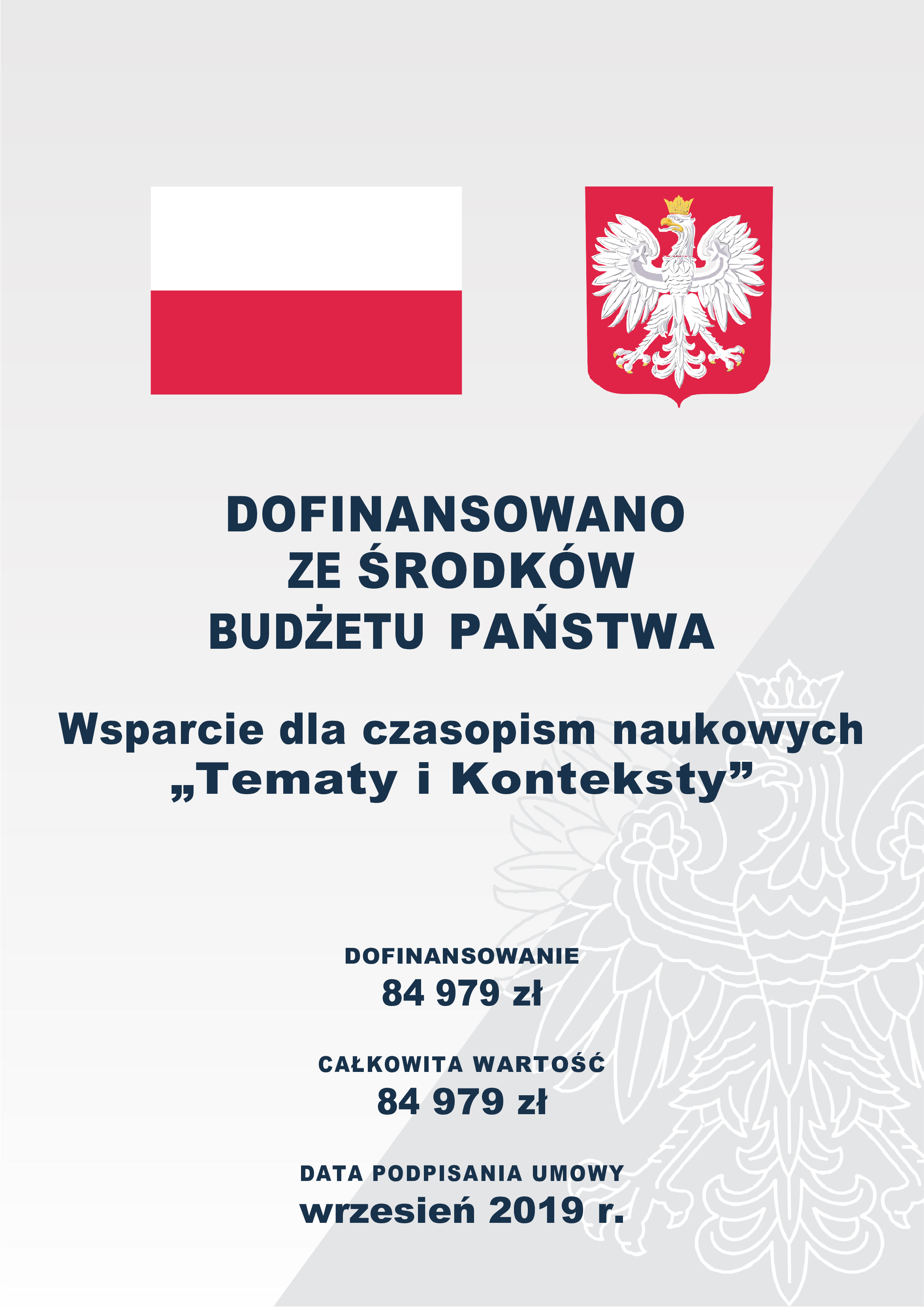Disgust as a Warranty of Affective Cognition. The Case Study of "Copyright" by Michał Witkowski
DOI:
https://doi.org/10.15584/tik.2020.33Keywords:
disgust, affect, childhood, unfamiliarity, cognitionAbstract
Copyright (2001) was interpreted as a story about childhood and adolescence, presenting both experiences of a maturing protagonist as well as the Polish reality of the last two decades of the 20th century. Coming to terms with his own childhood and a search for the language to express his own „self” determines the narration of the book. However, this rhythm of narration is disturbed by objects of disgust that the stories teem with. As a result, the author would like to suggest interpreting the collection of stories by Witkowski from an affective perspective. By analysing the diffrent texts, the author explains what role disgust and its objects play in the collection. It is argued that despite its negative properties disgust may be a necessary condition of self-fulfilment and a source of affective cognition. This happens among others thanks to becoming aware of childhood feelings the main character experienced when confronted with the disgusting people and objects.
Downloads
References
Ahmed S., Performatywność obrzydzenia, „Teksty Drugie” 2014, nr 1.
Ariès P., Historia dzieciństwa: dziecko i rodzina w czasach ancien regime’u, przeł. M. Ochab, Warszawa 2010.
Bataille G., Erotyzm, przeł. M. Ochab, Gdańsk 2007.
Foucault M., Inne przestrzenie, przeł. A. Rejniak-Majewska, „Teksty Drugie” 2005, nr 6.
Freud Z., Wstęp do psychoanalizy, przeł. P. Dybel, Warszawa 1984.
Giddens A., Nowoczesność i tożsamość. „Ja” i społeczeństwo w epoce późnej nowoczesności, tłum. A. Szulżycka, Warszawa 2012.
Kristeva J., Czarne słońce. Depresja i melancholia, przeł. M. P. Markowski, R. Ryziński, Kraków 2007.
Kristeva J., Potęga obrzydzenia. Esej o wstręcie, przeł. M. Falski, Kraków 2007.
Maliszewski K., Copyright, Witkowski, Michał, http://wyborcza.pl/1,75517,181017.html (dostęp 11.05.2018).
Margalit, Emocje przypomniane, w: Historie afektywne i polityki pamięci, red. E. Wichrowska, A. Szczepan-Wojnarska, R. Sendyka, R. Nycz, Warszawa 2015.
Nussbaum M., Hiding from Humanity. Disgust. Shame and the Law, New Jersey 2006.
Nussbaum M., Gniew i wybaczenie. Uraza, wielkoduszność, sprawiedliwość, przeł. J. Kolczyńska, Warszawa 2016.
Menninghaus W., Wstręt: teoria i historia, przeł. G. Sowiński, Kraków 2009.
Miller W. I., The Anatomy of Disgust, Cambridge, Massachusetts, and London 1997.
Płuciennik J., Literackie identyfikacje i oddźwięki. Poetyka a empatia, Kraków 2004.
Rusinek W., W poszukiwaniu utraconej rzeczywistości. Jeszcze raz o prozie tak zwanych „roczników siedemdziesiątych”, w: Literatura polska 1989–2009. Przewodnik, red. P. Marecki, Kraków 2010.
Warkocki B., Balonówka z coca-colą, „Pro Arte” 2001, nr 14–15.
Witkowski M., Copyright, Kraków 2001.
Downloads
Published
How to Cite
Issue
Section
License
Copyright (c) 2020 Tematy i Konteksty

This work is licensed under a Creative Commons Attribution-NonCommercial-NoDerivatives 4.0 International License.




